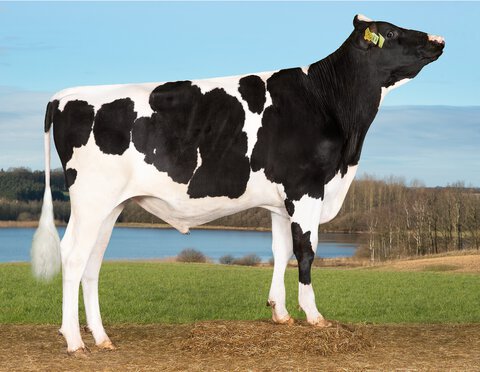Bjarne Refsgaard milks 125 Holstein cows at the Vester Bjerregård farm in West Jutland, Denmark. He and his wife purchased the farm in 1991, along with the high-quality herd that came with it.
Making the most of innovation is a must for Bjarne, and he knows good genetics are key to a successful herd. So when the opportunity to genomically test his herd came along, Bjarne knew this was one way to achieve this, and the results didn’t disappoint.
Among the very first animals to be tested, two heifers ranked so highly that VikingGenetics offered to buy them. Knowing that they would contribute to the VikingHolstein breeding programme, Bjarne did not hesitate to sell them.
"Selling the heifers to VikingGenetics was the right decision. I doubt I would be able to find enough recipients here in my herd while they have ideal conditions for it at the flushing station,” he explains.
After flushing, one of the cows – a VH Alberta daughter – went to a different herd, where she completed her first 305-day lactation yielding 12,182 kg ECM, where her valuable solids production really stood out.



